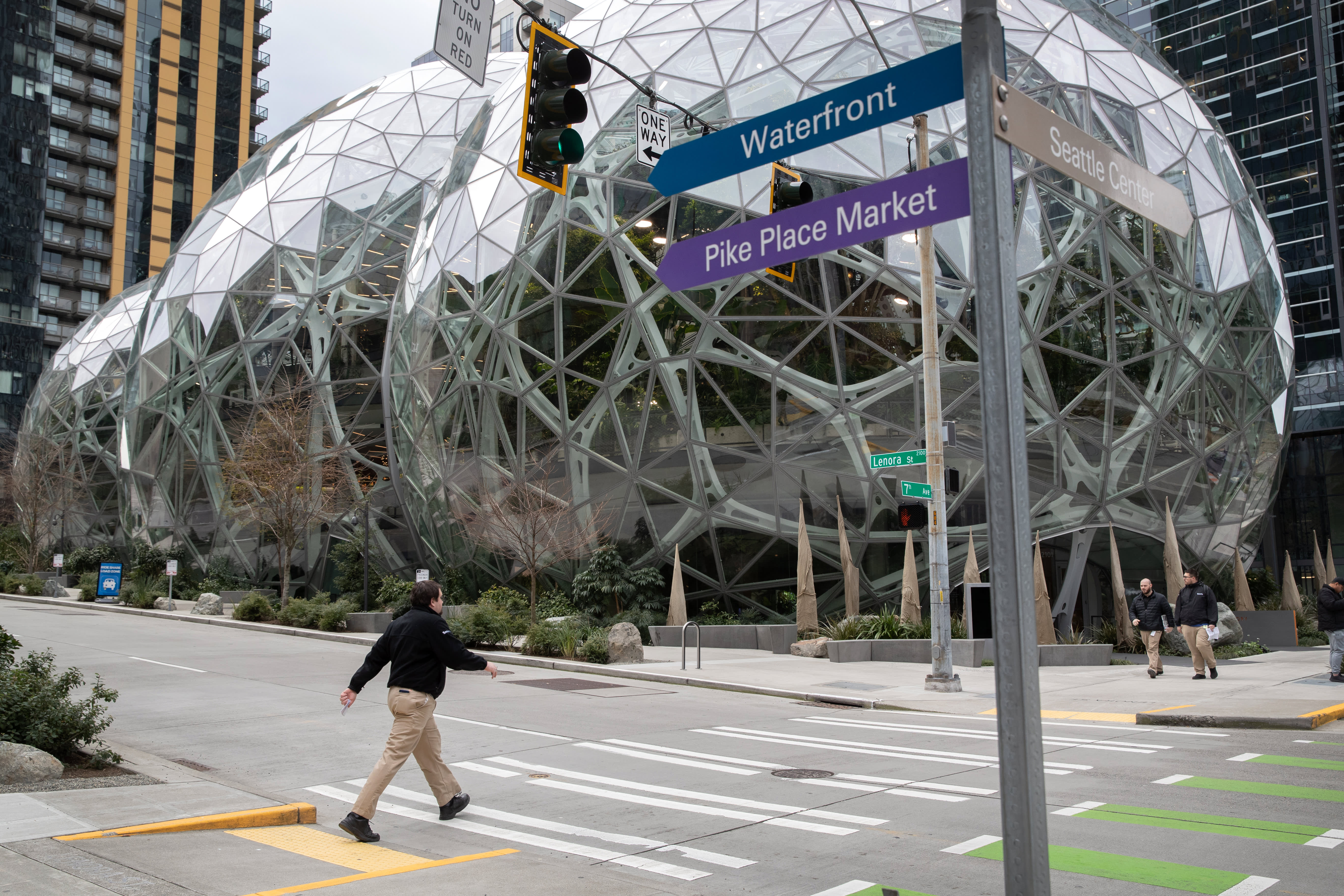Amazon, Intel and other tech companies acknowledge rejecting remote work could cost them talent

The Amazon headquarters sits virtually empty on March 10, 2020 in downtown Seattle, Washington. In response to the coronavirus outbreak, Amazon recommended all employees in its Seattle office to work from home, leaving much of downtown nearly void of people.
John Moore | Getty Images
Several companies are acknowledging that competitors with more flexible work arrangements may pose a significant risk to their businesses. Amazon, Pinterest, Intel and PayPal all mentioned, for the first time ever, evolving work environments could impact their ability to attract or retain employees, according to annual filings released in recent days.
And it shows, more than two years into the Covid-19 pandemic, big tech companies are still weighing how and whether to bring employees back to the office and the risks associated with getting everyone back under one roof.
Some white-collar tech employees are eager for offices to reopen, while others have bristled at the thought of returning to their desks and embraced remote work. Companies are capitalizing on that desire for flexibility by offering new hires tantalizing perks like the ability to set their own schedule or work from anywhere.
Take a look at the disclosures, which were added to the “Risk Factors” section in each company’s 10K filings with the SEC this week.
Amazon:
“In addition, changes we make to our current and future work environments may not meet the needs or expectations of our employees or may be perceived as less favorable compared to other companies’ policies, which could negatively impact our ability to hire and retain qualified personnel.”
Pinterest:
“Our future work strategy and our continued efforts related to employee onboarding, training and development and retention may not be successful. Further, our future work strategy is continuing to evolve and may not meet the needs of our existing and potential future employees and they may prefer work models offered by other companies.”
Intel:
“Competitors for technical talent increasingly seek to hire our employees, and the increased availability of work-from-home arrangements, accelerated by the COVID-19 pandemic, has both intensified and expanded competition.”
PayPal:
“The loss of the services of any of our key personnel, or our inability to attract, hire, develop, motivate and retain key and other highly qualified and diverse talent, whether in a remote or in-office environment, or address the safety, health and productivity of our workforce could harm our overall business and results of operations.”
A growing contingent of tech companies have opted to make remote work the norm, including Facebook, Twitter and Shopify. Others like Dropbox and Atlassian are ditching the idea of a centralized campus and are allowing employees to work from satellite locations disbursed across the country. Coinbase, Gitlab and Hashicorp, which all went public last year, either operate without an official headquarters or have a main campus, but advertise a “remote-first” workforce.
Tech workers now have a spectrum of choices when it comes to workplace flexibility. Even the likes of Google, Amazon and Apple, which have long poured money into elaborate headquarters, some with perks like free meals and napping pods, moved to offer more options, though they’re not as lenient as some other tech companies.
Before the emergence of the omicron variant delayed return-to-work plans, Google, Amazon and Apple had indicated employees would be expected to return to physical offices a few days a week.
Amazon CEO Andy Jassy previously told CNBC he felt a hybrid work environment would be the most practical approach in a post-pandemic world.
“I don’t think you’re going to have people coming back to the office 100% of the time the way they did before,” Jassy said.
WATCH: Hybrid work is here to stay. Activating your hologram may be the next way to enter a meeting